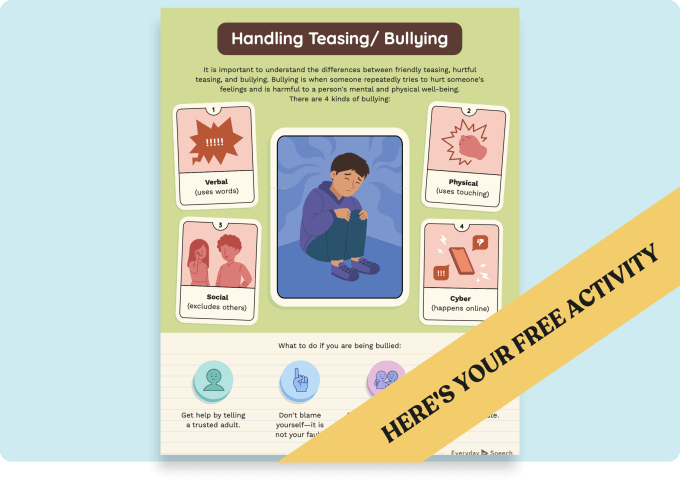Encouraging Students to Ask Questions: A Guide for Educators
Get free social skills materials
No-prep lessons on self-regulation, emotional recognition, conversation skills, and more.
Sign up hereIntroduction
As educators, we understand the importance of creating an environment where students feel comfortable asking questions. Questions are the foundation of learning and effective communication. In this blog post, we will discuss a no-prep activity that encourages students to ask questions, provide discussion questions to stimulate further conversations, and explore related skills for students to develop.
No-Prep Activity: The Question Game
This simple and engaging activity requires no preparation or materials from the educator. The goal is to encourage students to ask questions and practice active listening. Here’s how it works:
- Divide the class into pairs or small groups.
- One student in each group starts by asking any question they can think of, related to the subject being discussed.
- The next student must answer the question and then ask a new question to the next student.
- The game continues in this manner, with each student answering the previous question and asking a new one.
- Encourage students to ask questions that build on previous answers, promoting deeper understanding and discussion.
This activity not only promotes questioning and active listening but also helps students build their confidence in seeking clarification and understanding.
Discussion Questions
Use these questions to stimulate further discussions about the importance of asking questions and the role they play in learning:
- Why is it important to ask questions when we don’t understand something?
- How can asking questions help us become better learners and communicators?
- What are some strategies we can use to ask effective questions?
- How can we create a supportive classroom environment where everyone feels comfortable asking questions?
Related Skills
Asking questions is just one of many essential skills that students need to develop. Here are a few related skills that can further enhance their learning experience:
- Active Listening: This skill involves giving full attention to the speaker, understanding the message, and providing feedback. It helps students better understand the topic and ask relevant questions.
- Effective Communication: Being able to express thoughts, ideas, and feelings clearly is crucial for students. It allows them to ask questions, share their knowledge, and collaborate with their peers.
- Critical Thinking: This skill enables students to analyze information, evaluate evidence, and make well-informed decisions. It encourages them to ask deeper questions and seek a better understanding of the subject matter.
Next Steps
Now that you have learned about the importance of asking questions and related skills, it’s time to put this knowledge into practice. To help you get started, we invite you to sign up for free samples of skill-building materials at Everyday Speech. These resources will provide you with engaging activities and lessons to help your students develop essential communication and learning skills.

